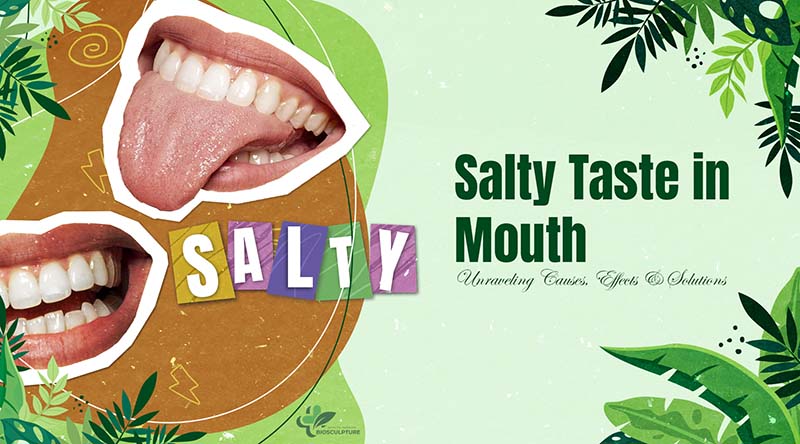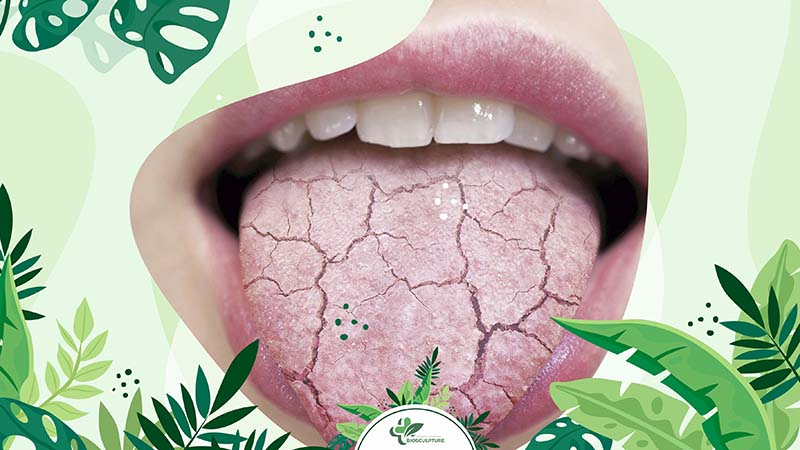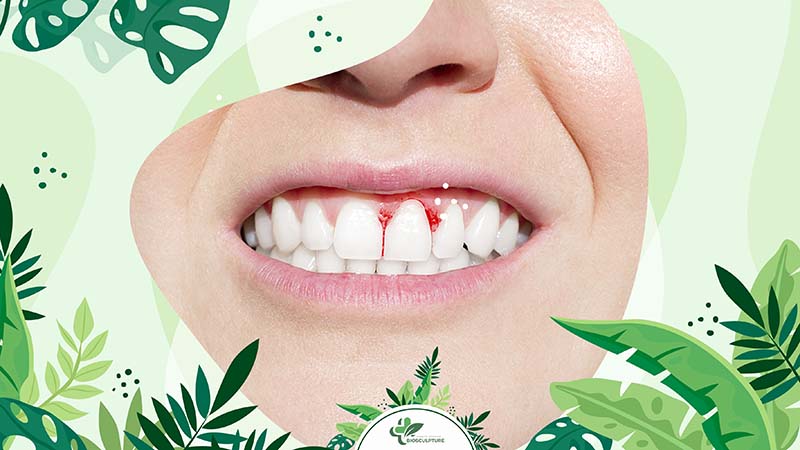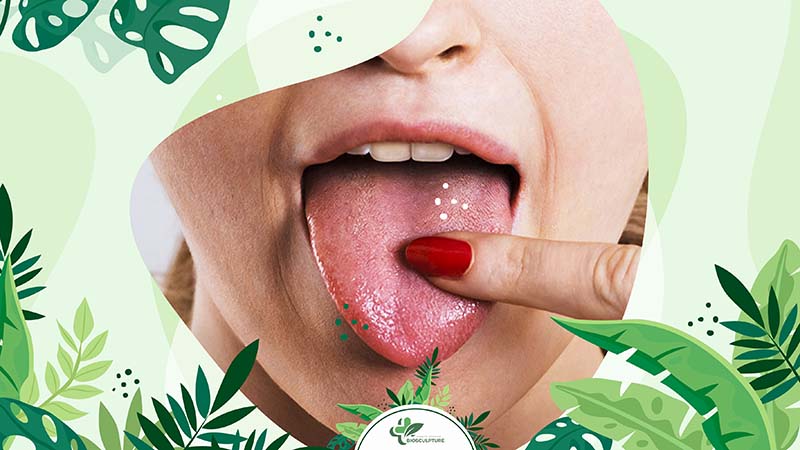Waking up to a salty taste in your mouth or noticing it during meals and after periods without food or drink, can be perplexing. This phenomenon, often referred to as dysgeusia, is a condition where the taste buds send confusing signals to the brain.
The causes of a persistent salty taste vary widely, from harmless dryness in the mouth to more serious underlying health issues like infections or even head trauma. While it’s easy to dismiss this as a minor issue, it could be a red flag signaling the need for professional medical evaluation.
In this discussion, we’ll explore the typical reasons behind the salty taste in mouth, explore various treatment options, and highlight the importance of consulting with a healthcare professional if this symptom persists.

1. What Are the Symptoms of Altered Taste Sensation?
Constantly experiencing a salty taste can significantly affect your daily life, making it challenging to maintain adequate nutrition and hydration. This altered sensation can distort the flavors of foods and beverages, reducing the enjoyment of eating and leading to potential health complications such as:
- Dehydration, resulting from insufficient fluid intake due to the unpleasant taste.
- Involuntary weight loss, as a result of decreased food consumption.
- Disruption in medication adherence, particularly if the medicines contribute to the salty taste. It’s important to consult a healthcare professional before making any changes to your medication regimen.
- Development of mouth sores or infections, particularly in cases of prolonged dryness.
- Overhydration, which can be as harmful as dehydration, especially in individuals with certain medical conditions like heart or renal issues.
- Excessive use of sugar or alternative flavorings in an attempt to overcome the salty taste.

2. Why Does Everything Taste Salty Taste in Mouth
A salty taste in your mouth isn’t usually a sign of a major health crisis, but it’s definitely something you shouldn’t ignore. Common reasons for feeling like you’ve just licked a salt block include:
2.1 Dehydration
Your saliva has a bit of salt in it naturally. But if you’re not drinking enough water, that salt stands out more. Think about a pinch of salt in a big glass of water versus in just a spoonful – the smaller amount of water makes the saltiness more intense. Drinking enough water daily can help wash away that salty taste. But, if you have heart or kidney issues, don’t just start chugging water. Check with your doctor on how much you should be drinking.

2.2 Dry Mouth
Also known as xerostomia, this is when you don’t have enough saliva. It can leave you with a salty or even metallic taste. Dry mouth is more common as you get older and can be a sign of other health issues like diabetes. While over-the-counter products like mouthwashes can help, if they don’t, see your healthcare provider as it could lead to tooth problems.

2.3 Medications That Can Cause a Salty Taste in Mouth
Some meds, including antidepressants, allergy pills, and painkillers, can make your mouth feel dry or taste salty. If you’re noticing these changes after starting a new medication, talk to your doctor. They might be able to switch you to something else or suggest products to help.

2.4 Post-nasal Drip
This is when mucus from your nose drips down your throat, leading to a salty taste. It’s often linked to allergies or sinus infections. If you’re constantly clearing your throat or have an “off” taste, see your doctor to figure out the cause.

2.5 Pregnancy
Hormone shifts during pregnancy can swell nasal passages, leading to a runny nose and sometimes a salty taste. This usually ends after pregnancy. Saline nasal sprays can offer some relief but talk to your healthcare provider before using any medications while pregnant.

2.6 Gastroesophageal Reflux Disease (GERD)
If stomach acid backs up into your throat, it can cause a salty or sour taste, along with heartburn or a constant cough. Treatments are available, so if you have these symptoms, see your doctor. Ignoring GERD can harm your esophagus and lead to more serious issues.

2.7 Autoimmune Conditions
Diseases like lupus can increase your risk for conditions affecting your saliva, like Sjögren’s syndrome, leading to a dry or salty mouth. Inform your healthcare provider if you have an autoimmune disease and are experiencing these symptoms.

2.8 Neurological Disorders
A rare cause, but issues with your brain or nerves can affect your taste. This is usually accompanied by more severe symptoms, like headaches or vision changes. If you’re experiencing these, along with a salty taste, it’s time to see a doctor.

2.9 Blood in the Mouth
A salty or metallic taste can indicate bleeding, possibly from brushing too hard or gum disease. Regular bleeding after brushing or flossing isn’t normal and could be a sign of gum disease, which needs treatment to avoid more severe infections.

2.10 Infections
Beyond gum disease, infections like oral thrush or HPV can affect your mouth’s taste. These might show up as white patches, bad breath, or even loose teeth. If you notice these symptoms, see your dentist or doctor.

3. Treatment Options and Home Remedies for a Salty Taste in Mouth
Many can remedy a mild salty taste in their mouth with simple at-home solutions. To tackle the discomfort brought on by dry mouth, consider adopting the following strategies:
- Maintain good oral hygiene by brushing your teeth, flossing regularly, and rinsing your mouth.
- Steer clear of foods that are dry, overly salty, or acidic.
- Refrain from consuming alcoholic beverages.
- Avoid smoking and the use of tobacco products.
- Use over-the-counter products designed to replace saliva.
- Chew sugar-free gum to stimulate saliva production.
- Suck on sugar-free lozenges or hard candy to keep your mouth moist.
- Drink adequate water, typically eight to twelve 8-ounce glasses daily.
Note: Adjust your water intake based on your activity level and overall health, especially if you have kidney or heart conditions.

If you suspect that your medication is the culprit behind the salty taste, it’s crucial to talk with your healthcare provider. They might suggest an alternative medication or adjust your current prescription. Always consult your medical team before making any changes to your medication regimen.
When the salty taste is linked to a specific health issue, addressing that root cause is key. For instance, treating postnasal drip effectively might eliminate the salty taste in your mouth.
Remember, these tips are for managing mild symptoms. If your salty taste persists or is accompanied by other symptoms, it’s important to seek professional medical advice to ensure proper treatment and care.
4. Summary
In summary, managing a Salty Taste in Mouth involves a combination of proper oral hygiene, lifestyle adjustments, and understanding the underlying causes. From staying hydrated to avoiding certain foods and consulting with healthcare providers regarding medication side effects, there are various ways to alleviate this discomforting symptom. We encourage you to share your own experiences and feedback on dealing with a Salty Taste in Mouth. Sharing your experiences can greatly help others facing similar issues. For more health tips and insights, explore our other articles at Biosculpture. Your health journey is important, and we’re here to provide the knowledge and support you need.


